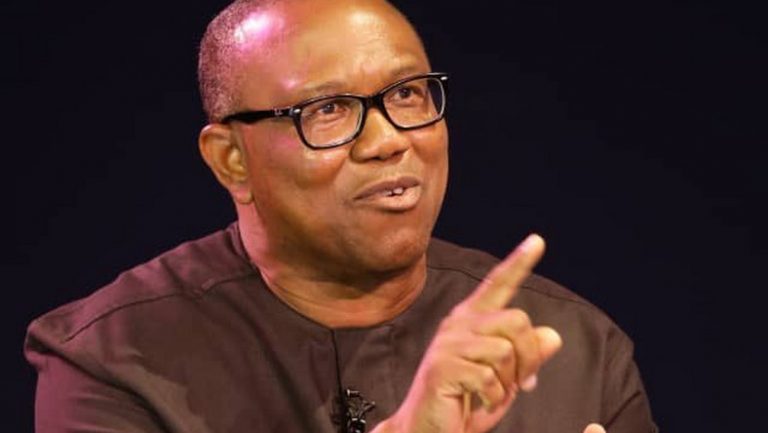
Former Governor of Anambra State, Peter Obi, has criticized the federal government’s policy of focusing more on infrastructure development while allegedly overlooking small and medium businesses (SMEs).
Obi spoke out against such policies on the Arise News network’s Morning Show yesterday.
Many countries that have addressed their problems, he claims, have not relied on infrastructure to propel their economies.
The vice-presidential candidate in Nigeria’s general election in 2019 said that poverty should not be viewed as a frightening concept; rather, he cautioned, the focus should be on whether the country is making prudent and proper investments.
“I have said it countless times that SMEs drive the economy of every country,” he says. Poverty is an issue that affects people all over the world. It took place in China. Everyone knows that China has rescued almost 400 million people from poverty. It happened in India as well, but almost 200 million people were lifted out of poverty in just five years. It also happened in Vietnam.”
He highlighted Bangladesh as an example of how any country may boost its economy by investing in education and small businesses.
According to Obi, Bangladesh’s GDP was $101 billion in 2008, with a per capita income of $753 and a debt of $50 billion, accounting for half of the country’s GDP.
According to the Peoples Democratic Party (PDP) vice presidential candidate for the 2019 elections, Bangladesh’s economy is now worth over $300 billion, per capita income has increased thrice from $753 to over $2,000, and the country’s national debt is $102 billion.
Read Also: Police rescue 33 as IGP deploys Joint-Crack Team to Jos
“Their debt has really decreased because it is currently at 30% of their GDP, rather than 50%,” Obi added. What went wrong? Bangladesh allocated the funds to small and medium-sized businesses. Bangladesh is now the world’s second-largest exporter of textiles.
“Bangladesh has over 5,000 textiles and produces over $35 billion in textiles and textile products, which is roughly equivalent to what we produce from oil.
“I looked to see if other countries had done the same. They put money into SMEs and invest in education as well. They did not continue to construct further infrastructure.”